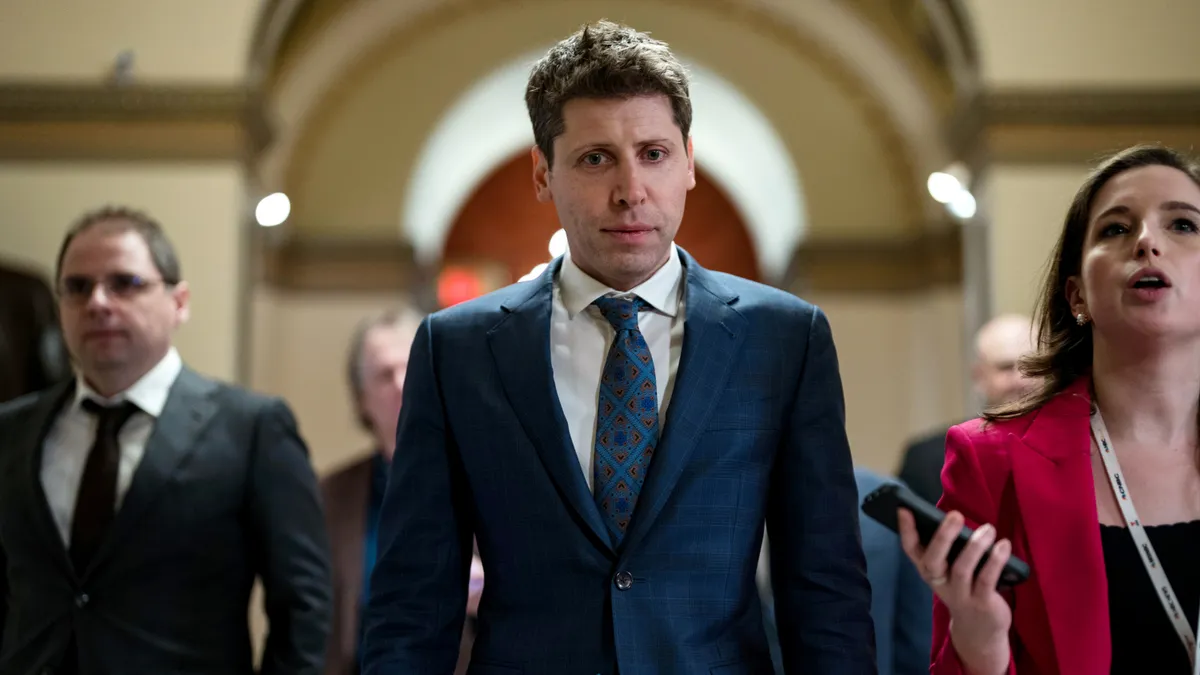Dive Brief:
- OpenAI formally reinstated CEO Sam Altman to its board of directors following a third-party review of its November leadership shake-up, the company recently announced.
- An in-depth investigation conducted by global law firm WilmerHale concluded the prior board of directors acted "within its broad discretion" to oust Altman, though his conduct did not mandate removal.
- OpenAI also expanded its board to include Sue Desmond-Hellmann, former CEO of the Bill and Melinda Gates Foundation; Nicole Seligman, former EVP, global general counsel and president at Sony; and Fidji Simo, CEO and chair at Instacart.
Dive Insight:
OpenAI placed generative AI under a spotlight with the public release of ChatGPT. CIOs along with other leadership members rushed to adopt the technology over the past year, and vendors — from cloud to ERP — embedded generative AI into existing solutions and new products.
Even as the enterprise generative AI ecosystem grew to include hyperscalers, software giants, PC manufacturers and chipmakers, as well as newer entrants like Anthropic and Cohere, OpenAI retained its starring role in the generative AI story.
The leadership ousting leading up to ChatGPT’s one-year anniversary didn’t cause enterprise customers to ditch plans, OpenAI said as Altman rejoined as CEO last year. But it did draw attention to the need for long-term stability following rapid adoption.
“For those CIOs within organizations with a high degree of focus on AI ethics, the recent board appointments should provide assurances that adults are now running the company versus the odd group of academics and technologists that may have been driven by esoteric agendas,” Scott Bickley, practice lead and principal research director at Info-Tech Research Group, said in an email.
The board members’ enterprise backgrounds also ease customer worries, Bickley said.
Ultimately, the close partnership with Microsoft softened the initial blow, and with the third-party review of incidents complete, OpenAI will aim to put the drama in the rearview mirror. And, overall, enterprises seem willing to let it go, according to Bickley.
The third-party review cleared Altman of allegations that he pushed staff to circumvent product safety or security, which will serve as a way to validate CIOs and tech chiefs leaning into these solutions, Bickley said.
But there are plenty of other enterprise concerns, aside from OpenAI’s inner workings, that span generative AI vendors.
CIOs are facing a complicated liability landscape. Courts are still deciding on issues related to the intersection of generative AI and intellectual property and copyright. Cybercriminals weaponizing generative AI use is another fear.
“At the end of the day, CIOs will have to deploy their own AI governance structures and policies, and OpenAI, along with any other vendors, will have to comply with those AI guardrails in order to be a candidate,” Bickley said. “ChatGPT will not be going anywhere anytime soon, and neither will OpenAI.”












